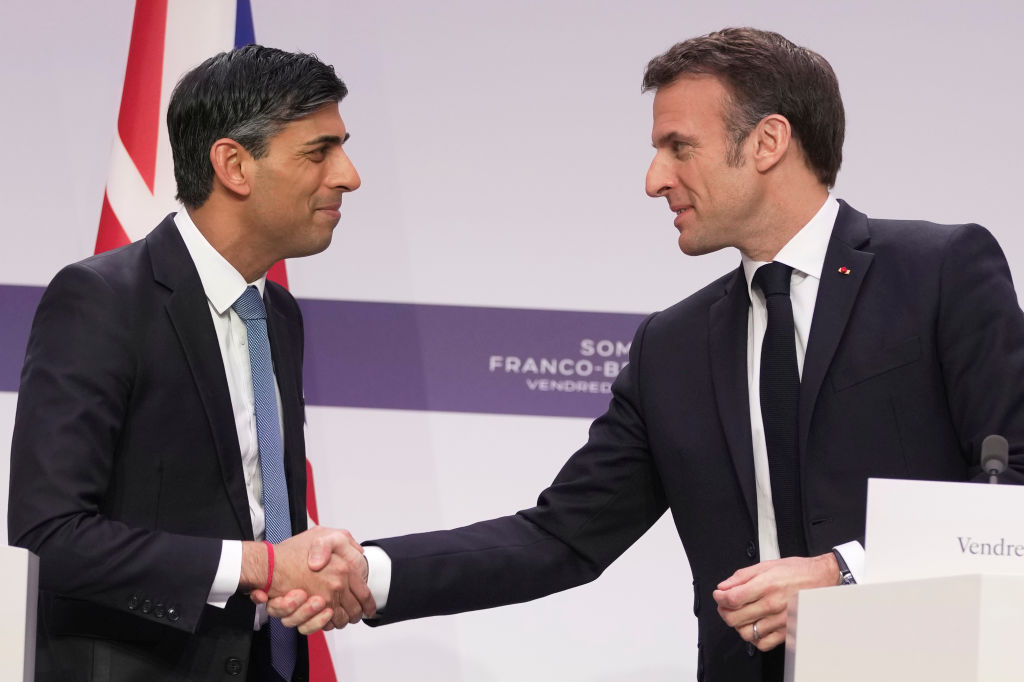Rishi Sunak and Emmanuel Macron held a press conference together at the Élysée Palace today to mark their new deal on stopping the Channel crossings. It is part of the first Franco-British summit for five years and a chance for Sunak to demonstrate his commitment to breaking with the factitious post-Brexit era in UK-France relations. ‘The jury’s still out’ said Liz Truss when asked seven months on whether Emmanuel Macron was a ‘friend or foe.’ ‘Merci, mon ami’ was how Sunak preferred to conclude his charm offensive today. The message was clear: charm is back – and offensive is out.
Sunak referred to the ‘shared challenge’ of stopping these boats; Macron said the nations, bound by history and geography, were determined to ‘make progress in lockstep’. And it wasn’t just warm words between the pair. The UK has signed a new £478 million three year-deal, in return for a raft of measures to stop the small boats crisis. Among them include more beach patrols, extra drones and further aircraft. Most eye-catchingly of all is the opening of a new detention centre to help French Border Force cope with the thousands of migrants being trafficked by people smugglers. It comes alongside a new 24/7 zonal coordination centre, with permanent UK liaison officers.
The level of investment is a significant step-up from previous efforts. Between 2014 and 2023, the UK agreed to pay £319 million in spending related to border security in northern France. The equivalent of £159 million a year will now be paid annually for each of the next three years. Such figures must be set against the wider costs of the current asylum system. The Rwanda deal cost £120 million last summer while the Home Office has had to find an extra £2 billion to fund hotel rooms for asylum seekers. More than £6 million a day is now being spent on housing 50,000 migrants in such accommodation.
Given the level of political capital which Rishi Sunak has invested in ‘stopping the boats’, this money is no doubt well-justified. But it’s worth reflecting on the different motivations of the two leaders in their press conference. Sunak, and the accompanying UK press pack, saw the conference through the lens of domestic politics. The questions he received and the answers he gave reflected British concerns about the rising number of illegal migrants arriving here.
But Emmanuel Macron framed the subject in much broader terms. He confirmed that any returns agreement for failed asylum seekers will have to be negotiated with the EU, not bilaterally with France. He said that the pair needed to look at how asylum seekers are arriving in Western Europe and that the European Political Community (EPC) is the right forum for this. The EPC is Macron’s baby, created in response to the Russian invasion, with the migration crisis clearly offering a chance to expand its responsibilities.
That difference in approach between the two leaders could be a key sticking point as Sunak tries to stop the small boats and deliver where his predecessors failed.







Comments